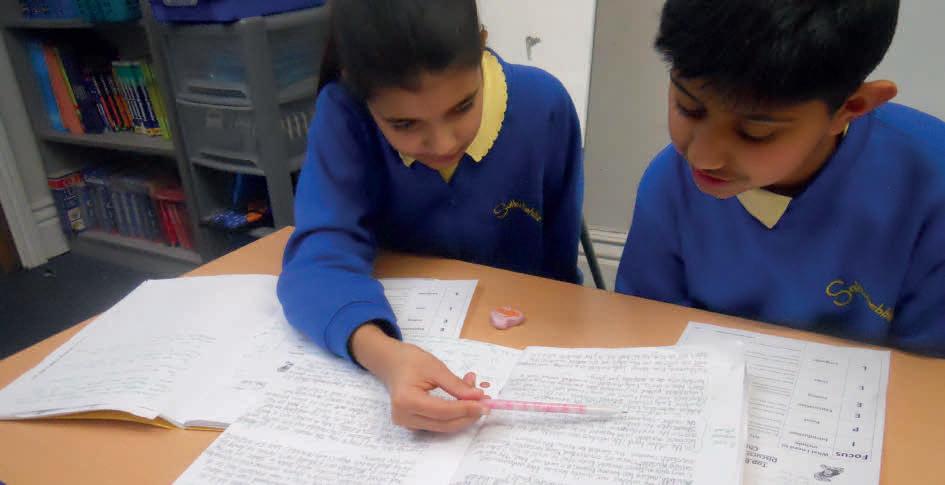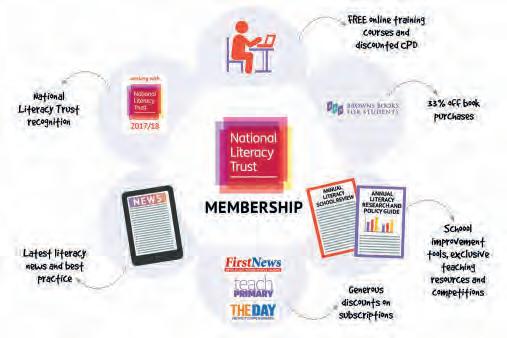
4 minute read
Visits
Memorable experiences
All too often, children are asked to write about things they know little about or have not experienced, so writing is even harder than it needs to be. Some children have a limited set of experiences to draw upon so, if we want them to be enthusiastic writers, we need to provide stimuli that will motivate and inspire them. Memorable learning experiences can provide the stimulus for writing for real audiences and for specific purposes. The extent of such events is vast, ranging from full-scale residential visits to small-scale class incidents. If the experiences are to be used as stimuli for writing, then events need to be planned regularly and not just end-of-year visits. Indeed, as budgets come under increasing pressure and transport costs become prohibitive, school-based events can be far more attractive. A class visit to a local park in Leeds was the inspiration for letters to the local council about the poor state of the facilities. The cost of about the poor state of the facilities. The cost of the visit was negligible but the opportunities for the visit was negligible but the opportunities for writing for a diff erent audience and for a real purpose were significant. In this section, we will consider some of the different activities that have proved successful in providing a stimulus for writing:
Visits


Visits to a wide range of venues can be fantastic opportunities to develop students’ knowledge and provide the motivation for different types of writing. Some visits to cultural venues, heritage sites and art galleries can also develop awareness of the local cultural offer. However, all excursions from the school will involve planning, preparation and form-filling, so it is important to make sure that the form-filling, so it is important to make sure that the resultant learning activities tick as many boxes as possible. It is inevitable that many planned visits will form part of a school’s thematic approach to learning but, whatever the main focus, there will always be opportunities to develop children’s writing skills.
What is the purpose of the visit?
Some of the larger cultural venues are well equipped for school visits. Talk to the education manager at the venue beforehand about what your pupils are doing and the purpose of the visit. They will be keen to help you and your students get the most out of the visit and will be able to make suggestions.
How to work successfully with the team at the venue
Staff and volunteers at the venues are incredibly knowledgeable about their subject area and are also skilled at igniting students’ curiosity. Encourage your students to ask questions, perhaps preparing some in advance. Each venue works with schools in different ways, so find out how your visit will be facilitated – you might be working with an actor in character as a historic figure or a member of the education team, or your visit may be self-guided. It can help your visit run more smoothly if you have already been to the venue and familiarised yourself with the layout and any relevant collection items. Education teams will often offer free pre-visits for teachers so it’s worth asking. Consider how much preparation the students need. It would be useful for them to know the objectives for the visit, including what the purpose and audience of any resulting work will be (e.g. a display in the library or a performance in assembly), and perhaps some information about the venue itself. Do share any successes or challenges with the venue as this will help them to ensure that all schools have the best experience possible during their visit. They will be particularly delighted to see any work inspired by their venue or collection items, and they may even provide the opportunity to display the students’ work. Indeed, they are a potential audience for the children’s writing.
Costs
Many cultural venues are charitable organisations and have to charge visitors to cover their running costs. However, they will always try to keep the cost to school groups as low as possible. If there is a charge, ask the venue if they know of any funding available to support school visits, or look for a venue that is free to enter. In the latter case, it may be that your visit needs to be self-guided and a voluntary contribution is required. Look into public transport routes to keep costs down. Some transport companies offer free travel to school groups so it is worth getting in touch with them to discuss your journey. For example, schools in the London area might be able to use the TfL School Party Travel Scheme.
Popular venues
■ Activity centres – pot-holing, rock climbing, circus skills etc. ■ Archaeological sites ■ Adventure or outdoor pursuits centres – residential visits ■ Art galleries ■ Castle visits or historic sites
■ Cave visits
■ City visits ■ Egyptian World or special exhibitions hosted by museums ■ Heritage museums ■ Historical period venues ■ Local parks ■ Magistrates’ courts ■ Museums ■ Places of worship ■ Royal armouries ■ Seaside visits ■ Sealife centres
■ Science shows ■ Sculpture parks ■ Space centres ■ Sporting venues – football clubs, cricket grounds, velodromes, athletics tracks etc.
■ Theatre companies and performances ■ War museums ■ Wildlife parks ■ Zoos








